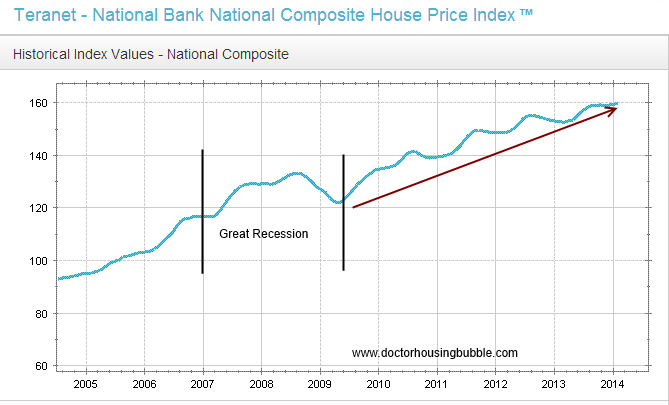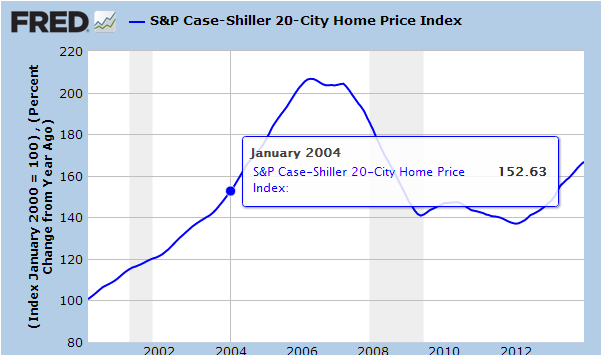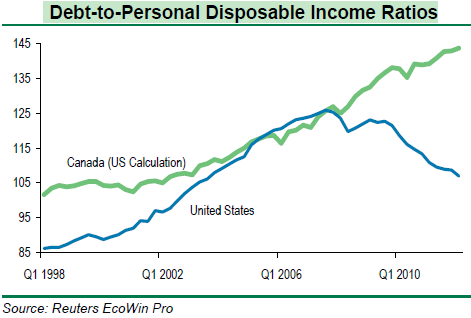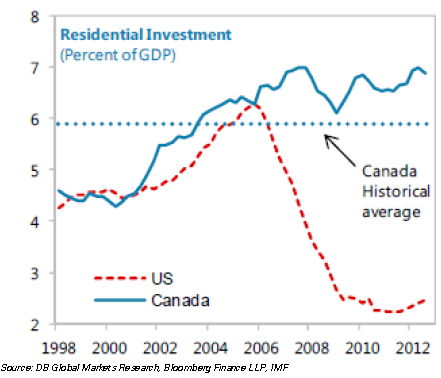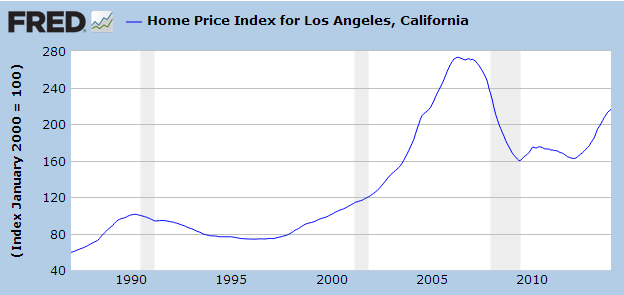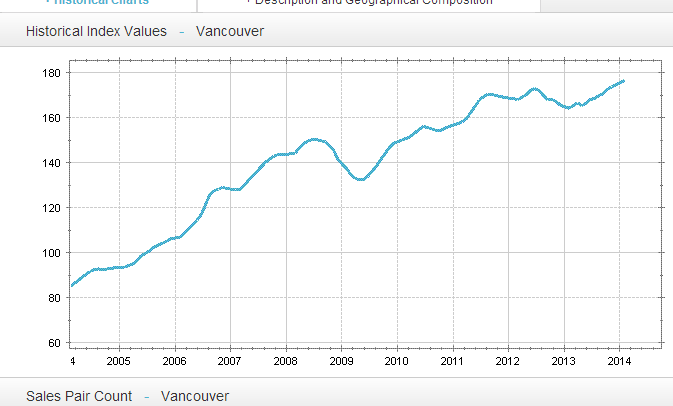Chinese Real Estate is in a league of its own. Unlike the US/Canada/UK/Australia where real estate is a function of simple overvaluation and speculation, China took real estate to a whole new level of ridiculousness. Massive developments, empty cities and massive empty shopping malls. In fact, real estate speculation has became a nationwide pass time. Last time I was there I heard the same thing from many very well to do and very smart Chinese “Our government will not let real estate collapse or even decline and because of that our real estate market will continue it’s climb….forever.” You can read my previous post here.
Sure, whatever makes you sleep better at night.
Now, the Chinese Communist party is delusional enough to believe they can control the real estate market (or any market) and let it slow down “Softly, Softly”. With the Chinese economy finally showing major cracks and with the US bear market just around the corner, I highly doubt that Chinese real estate sector can escape carnage. Oh, and don’t forget the following numbers for China
- $21 Trillion Debt Mountain. Roughly the same size as the entire US Banking Sector. It took the US 220 years to get to that number, it took China just 5 years of explosive credit growth.
- $6 Trillion In Shadow Banking. Actually, no one knows how large this number is. I have read good data/reports putting this number at $10-15 Trillion range.
Did you enjoy this article? If so, please share our blog with your friends as we try to get traction. Gratitude!!!
Click here to subscribe to my mailing list
The Secret To Chinese Real Estate Google
China Premier Li Chooses ‘Softly, Softly’ Approach to Property Market
China’s property moguls probably sighed in collective relief when the curtain came down on the annual session of parliament Thursday and there was no announcement of any new measures to keep real-estate prices from spiraling higher.
While the annual event is known more for ceremony than substance, it does give the senior Communist Party officials—the ones who really run the show—a chance to make important pronouncements on policy matters.
The parliament session opened with much fanfare but it paid only minimal attention to the housing market, where prices have continued to march higher despite more than four years of government-control measures.
The last chance for an unpleasant market surprise was the premier’s news conference Thursday morning, which traditionally is the final event on the parliamentary program. Premier Li Keqiang was asked directly whether there were any new policy measures planned that might affect the property market. He trotted out a time-worn line about ending speculation and building more affordable homes.
He could have said a tax on property values – now being used on a trial basis in Shanghai and Chongqing – would one day be rolled out more widely. But he didn’t.
He could have threatened a host of other tightening measures if there are more price advances like the nearly 11% year-on-year gain in February, according to a major private-sector survey. But he didn’t. And he could have vowed to get tough with speculators who ignore government efforts to curb price rises. But he didn’t.
The premier’s quiet approach followed the remarks of Finance Minister Lou Jiwei, who told reporters during the parliament session that a hefty tax on profits from home sales—one that has encouraged some people to divorce just to avoid paying it—was “defective.”
The policy shyness probably reflects the fact that the property sector is a key source of economic growth, which is now showing signs of flagging. Beijing has set a target of about 7.5% growth this year, and Premier Li said Thursday he is confident growth will be in a “reasonable range.”
But a raft of economic data released Thursday suggests that growth at the start of the year was fairly lackluster. Industrial production, retail sales, fixed-asset investment data and even property construction figures were released later in the day, and all looked disappointing. New construction starts—measured in terms of area—were down 27% from a year ago.
“[Decision makers] recognize a key role investment plays in boosting growth,” said ANZ economist Liu Li-gang, noting the softer tones of the premier’s remarks.
Others agreed.
“The officials are signaling that they do not want to intervene in the property market, but this doesn’t come as a surprise. They have been doing that quietly for the past year,” said Rosealea Yao, an analyst at GaveKal Dragonomics.
While the premier’s rhetoric was “softly, softly,” it was loud enough to be heard on the stock market. Property stocks eked out a 0.6% gain Thursday on the Shanghai bourse and they were up 1.5% from March 5, when the parliament session began. Analysts said that reflected relief that no new property measures were in sight. The Shanghai bourse as a whole, by contrast, fell 2.5% over the parliament session.








